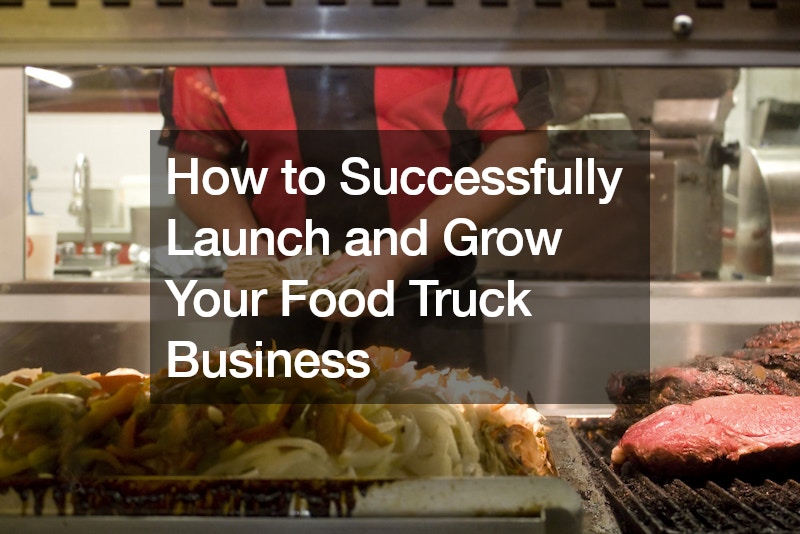Launching a successful food truck business requires careful planning, strategic decision-making, and attention to detail. From choosing the right concept to mastering digital marketing, here are the essential steps to guide you on your journey to food truck entrepreneurship.
-
Pick the Right Concept: The foundation of a thriving food truck business lies in selecting the right concept. It’s crucial to choose a concept that aligns with market demand. Conduct thorough market research to identify popular trends and preferences among your target audience.
Consider factors such as location, demographics, and consumer behavior to tailor your menu offerings accordingly. Whether it’s gourmet burgers, artisanal tacos, or plant-based bowls, catering to the preferences of your target market is key to success.
-
Choose Your Location Wisely: Location can make or break a food truck business. Strategic parking spots with high foot traffic are essential for maximizing sales opportunities. Explore areas such as financial districts, office buildings, parks, and event venues to identify prime locations for your food truck. Be mindful of zoning regulations and parking restrictions in different areas to ensure compliance and avoid potential fines. Additionally, consider the proximity to complementary businesses and amenities that can attract hungry customers to your food truck.
-
Craft Your Menu: When it comes to menu planning for a food truck, less is often more. Limit your menu to a selection of four to seven signature dishes to streamline operations and maintain quality. Focus on offering items that are not only delicious but also quick and convenient for customers on the go. Consider dietary preferences and emerging food trends when designing your menu to cater to a diverse range of tastes. Remember, quality over quantity is the key to creating a memorable dining experience for your customers.
-
Figure Out Startup Costs: Launching a food truck business requires careful financial planning to cover startup costs and ongoing expenses. From purchasing or leasing a catering trailer to investing in kitchen equipment and permits, there are various expenses to consider. Explore options such as catering trailers for sale to find cost-effective solutions that suit your budget and operational needs. Additionally, factor in costs for marketing, licensing, insurance, and supplies to ensure you have a comprehensive understanding of your financial requirements.
-
Understand the Financials: Profitability is essential for the long-term success of your food truck business. Calculate your average order value and profit margins to determine pricing strategies and revenue projections. Consider implementing tactics such as upselling complementary items or adjusting portion sizes to maximize profitability. Keep track of your expenses and revenue streams to identify areas for cost optimization and revenue growth. Having a solid grasp of your financials is crucial for making informed decisions and sustaining your business in the competitive food industry.
-
Design Your Truck: Your food truck’s branding and design play a significant role in attracting customers and creating a memorable brand identity. Choose vibrant colors, eye-catching signage, and modern aesthetics that reflect your brand personality and menu offerings. Invest in high-quality graphics and signage to enhance visibility and attract attention on the streets. Whether it’s a sleek wrap design or custom LED lighting, make sure your food truck stands out from the crowd and leaves a lasting impression on customers.
-
Obtain Permits & Licenses: Compliance with regulations and obtaining the necessary permits and licenses is essential for operating a food truck legally. Research local health regulations, zoning ordinances, and licensing requirements to ensure you meet all legal obligations. Obtain permits for parking, vending, and food handling from the relevant authorities to avoid potential fines or shutdowns. Additionally, consider liability insurance and health inspections to protect your business and ensure food safety standards are met.
-
Market Your Business: Effective marketing is crucial for attracting customers and building brand awareness for your food truck business. Establish an online presence through a professional website and active social media profiles on platforms like Instagram and TikTok. Share enticing photos of your menu items, engage with followers, and promote special offers to drive traffic to your food truck. Collaborate with local influencers, host pop-up events, and participate in food festivals to expand your reach and attract new customers. Utilize PR opportunities to gain media coverage and build credibility for your brand in the community.
Launching a successful food truck business requires careful planning, strategic decision-making, and relentless dedication. By following these essential steps and staying adaptable to changing market conditions, you can turn your culinary passion into a thriving mobile enterprise. With the right concept, location, menu, and marketing strategies in place, your food truck venture is poised for success in the competitive food industry.
.


